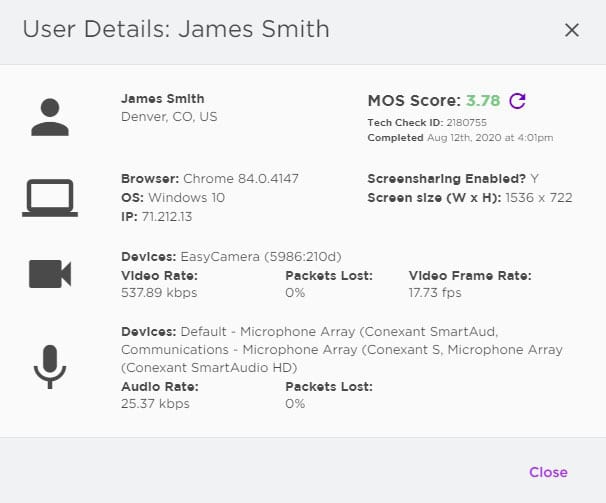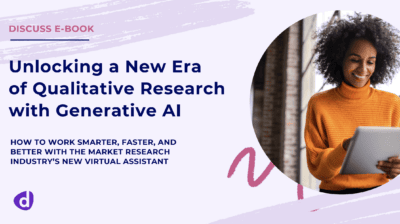People behave predictably… until they don’t

Award-winning author, Malcolm Gladwell, delivered the Keynote at TMRE 2017 this year. In his presentation, Gladwell urged the audience, thousands of professional researchers, to be skeptical of data. This certainly put some researchers on edge.
However, through the use of countless tables and charts in his presentation, it quickly became clear that Gladwell was not advocating for the abandonment of data. Quite the opposite, actually. Delivering his point, Gladwell used US News’s “Best Colleges” ranking as an example of how data might be not only misconstrued, but at times extrapolated from shaky grounds. In the case of college rankings, he paid special attention to the elements that went into determining college rank, notably the measure of “reputation.” According to Gladwell, this data is aggregated from survey sent to college presidents, who are asked to rank the reputations of their “peers” (in this case, other colleges and universities). Not only is this subjective, it’s also a completely arbitrary measure; no college president is familiar with every college’s reputation or what goes into forming that reputation. Repeatedly, Gladwell urged us to be aware of the “stories” behind our data, suggesting that it might not be as bulletproof as we hope. He proceeded to suggest other, less subjective, measurements (such as SAT score of incoming students) as better measurements for ranking colleges. Gladwell respects the immense value of accurate data, but urged the audience to be critical about the sources and ideologies of that data before calling it “truth.”
I would wager a guess that the vast majority of the room agreed with his outlook on data accuracy. As believers in data, we know that it must be credible, otherwise it will leads us to believe in falsehoods blanketed in the guise of truth. The audience applauded, and then it was time for questions.
Q&A kicked off when a man in the audience said the most provocative thing I heard the whole time that I was at the conference. After hearing a 60-minute keynote on how data, while incredibly valuable, was not bulletproof, this audience member stood up and asked, “If we can predict what a person will do, why do we care how people will think and feel?”
The room (especially those who focused on qualitative research) fell into silence. Was this man the beacon for all that is broken in how we approach data and consumer insights?
If consumer behavior was so predictable, we would all be millionaires or out of a job. This audience member was operating under a naïve comprehension of how consumer behavior is understood and how insights are uncovered.
Refuting this man’s point, Gladwell made a simple, yet powerful observation: “people will behave predictably… until they don’t.” Relying on an algorithm will show us the norm. However, deviants from the norm – unpredictable behavior – is actually what drives the consumer economy. When the algorithm fails, that’s when we have our greatest opportunities for insights.
We have to understand the “why” behind behavior. What are the motivators? Otherwise put, how do consumers “think and feel?”
Fundamentally, the way that we do this is through conversation. When we have questions that we’d like to explore further, we probe. By engaging in conversation, we are able to understand motivations that are manifested in the behaviors that consumers carry out.
Even if we could predict with certainty how consumers will behave, it’s critical to understand their motivations. When we understand the “whys,” we gain insights that help us to better engage with consumers again in the future. It’s great if a company pulls off a successful campaign, but if they don’t know why it was a success, they have no potential to repeat their success in the future. The endeavor is unsustainable and passive and will not lead to growth.
Brands who wish to understand how consumers “think and feel” are not superfluously practicing their ability to be warm and fuzzy. Understanding consumers’ motivations results in real business impact. When brands understand consumers, they are able to make more informed, better business decisions. Ultimately, these decisions are necessary if we hope to drive sales and increase market share.
Discuss.io enables brands to make better business decisions through deeper consumer understanding. Start a conversation with us to learn more about how launching a consumer closeness initiative can help your organization do the same.
Sign Up for our Newsletter
Related Articles

Video Conferencing Technology Best Practices to Ensure Outstanding Experiences
For modern researchers and CX professionals who use interviews to gather customer insights, reliable video conferencing technology is essential. But…
For modern researchers and CX professionals who use interviews to gather customer insights, reliable video conferencing technology is essential. But…

Why is everyone talking about Jobs-To-Be-Done?
The hardest part about attending a conference is not the long hours, lack of sleep, or constant search for an
The hardest part about attending a conference is not the long hours, lack of sleep, or constant search for an

Consequences of a strained research ecosystem
In theory, the Marketing-Insights relationship is mutualistic. Insights empowers Marketing to make business decisions rooted in research and...
In theory, the Marketing-Insights relationship is mutualistic. Insights empowers Marketing to make business decisions rooted in research and...


